Buddy Ebsen: 14 Facts About 'The Beverly Hillbillies' Star
Actor Buddy Ebsen, without realizing at the time, found himself at the center of the TV sitcoms landscape of the 1960s when he agreed to portray Jed Clampett in the television series The Beverly Hillbillies. That show, of course, focused on the Clampett family, a group of hillbillies who suddenly find themselves wealthy beyond imagination and decide to leave their roots behind and travel to California, a place where they'll never fit in — which gives the show its comic charm.
Buddy Ebsen was born Christian Ludolf Ebsen Jr on April 2, 1908 in Belleville, Illinois. Although he didn't recognize it when he was young, the fact that his German-born father was a choreographer and an advocate of physical fitness — and owned a dance studio — would turn out to play a major influence on his life and future as a performer.
Beyond The Beverly Hillbillies, Ebsen had a varied career that spanned vaudeville to Broadway, the big screen and, of course, television, with pitstops in between at 1939's The Wizard of Oz and post-Beverly Hillbillies series Barnaby Jones and Matt Houston.
To learn much more about this multi-faceted performer who enjoyed a near-70 year career, take a look below.
MUST-READ: Pull Up Your Rocking Chair and Enjoy Funny Facts About The Beverly Hillbillies Cast
1. Dancing became his passion
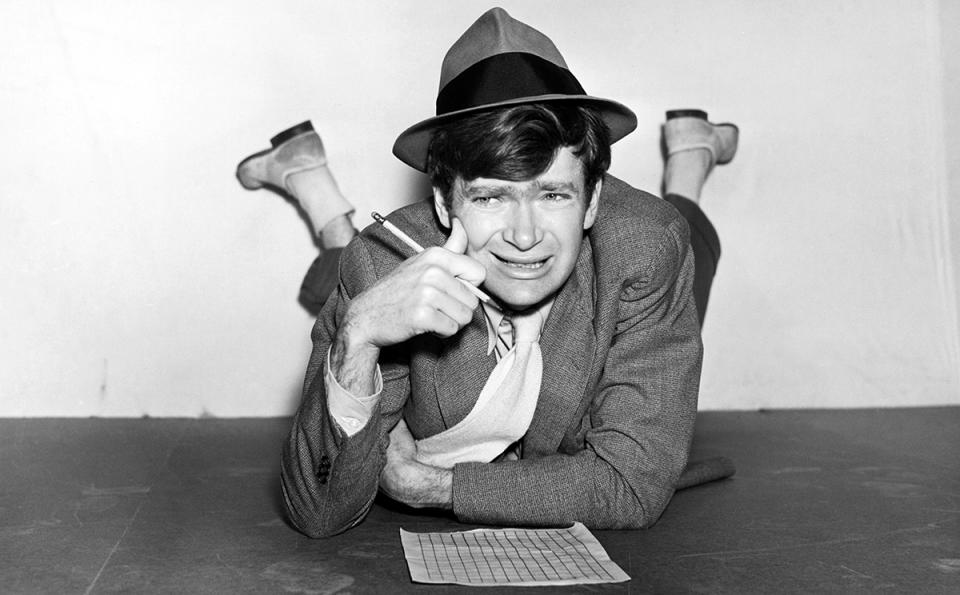
John Springer Collection/CORBIS/Corbis via Getty Images
As noted, Buddy's father ran a dance studio when the family moved to Florida, and, at the age of 10, he and his four sisters began learning how to dance, lessons that would help him throughout much of his career.
2. Buddy Ebsen actually intended to be a doctor
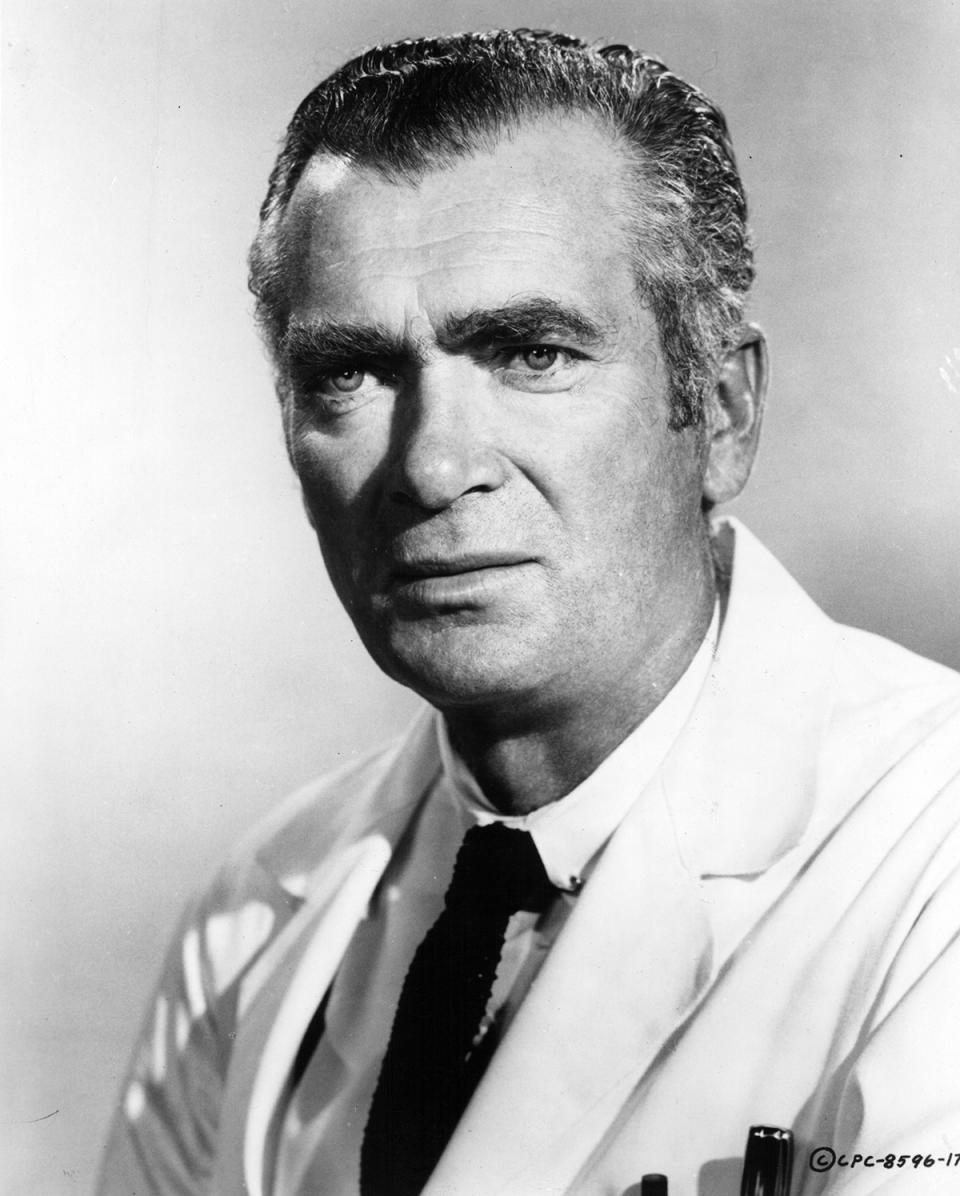
Pictorial Parade/Moviepix/Getty Images
Upon his graduation from high school in 1926, Buddy elected to pursue a career in medicine, attending the University of Florida and then Rollins College from 1926 to 1928. Unfortunately, financial challenges resulted in his dropping out at the age of 20. Next on his agenda was the idea of professional dancing.
3. Meet 'The Baby Astaires'

Archive Photos/Getty Images
Buddy Ebsen and his sister Vilma made the journey to New York, forming a vaudeville act they called "The Baby Astaires." They were successful enough that the act led them to Broadway, where they appeared in such musicals as Ziegfeld Follies of 1934, Flying Colors and Whoopee. This, in turn, led them back to vaudeville, playing at New York's more prestigious Palace Theatre.
4. For a time, he had a flourishing movie career
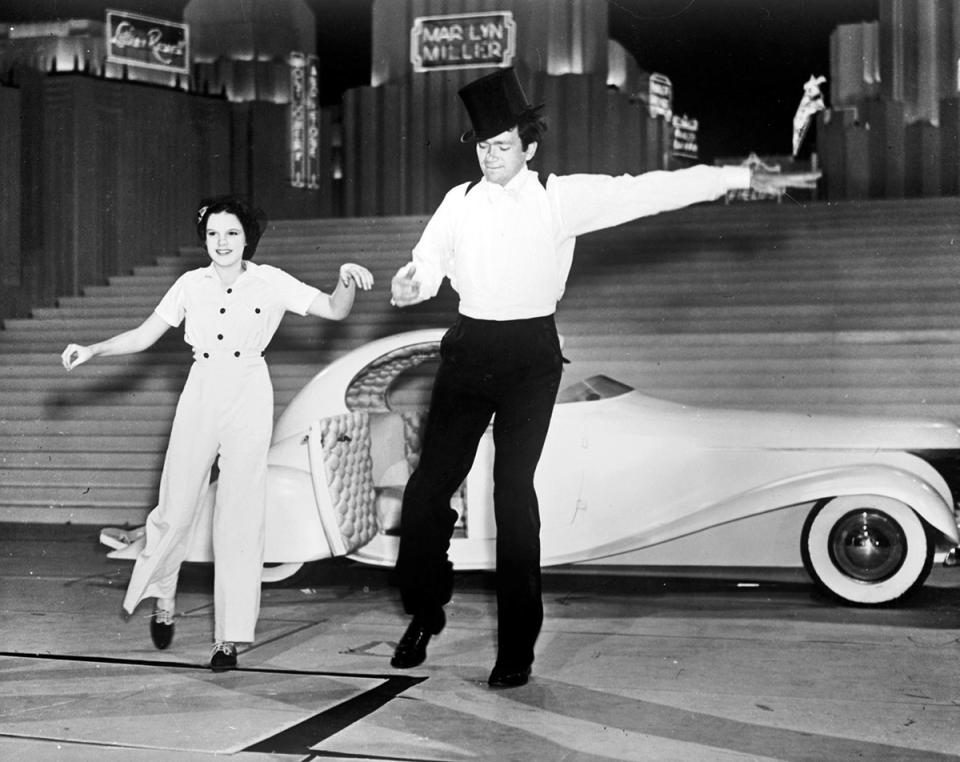
?MGM/courtesy MovieStillsDB.com
In 1935 MGM signed Buddy and Vilma to a contract and they would appear in 1935's Broadway Melody of 1936, after which she decided to go back home, where she began running her own dance studio. For his part, Buddy continued to act and appeared in both dramas and musicals (with stars like Judy Garland). As he explained it in a 1964 interview, he had read an ad looking for dancers for a Broadway show, which they auditioned and were hired for. He laughed, "I had taken dance lessons from my father when I was a kid, but quit when I was 12, because I felt dancing was sissified. Later I was mighty glad I had taken those lessons."
5. Buddy Ebsen has a very specific Disney connection

J. P. Aussenard/WireImage
His dance style, which was considered unique, caught the attention of Walt Disney, who arranged to film Ebsen dancing so that his movements could be incorporated into early versions of animatronics that Disney was developing. In 1993, the actor was named a "Disney Legend."
MUST-READ: The 14 Best Disney Films, Ranked — Sure to Have You Singing Along
5. He was the Tin Man in The Wizard of Oz ... briefly
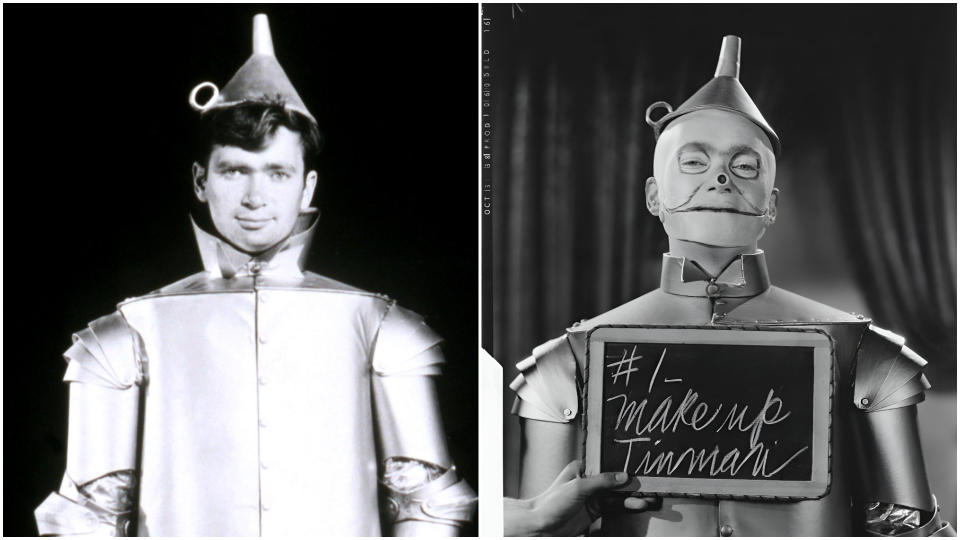
?WBDiscovery/courtesy MovieStillsDB.com (2)
When MGM was putting together the elements of The Wizard of Oz, Buddy Ebsen had originally been cast as the Scarecrow, but there was some sort of behind the scenes shift and Ray Bolger ended up in the part ("He must have been a pretty good salesman," mused the actor). Instead, he was offered the role of the Tin Man, which he accepted. Unfortunately, 10 days into production he developed an allergic reaction to the aluminum dust utilized for the character's makeup and was forced to depart, with Jack Haley coming aboard.
Beyond this, he had a falling out with MGM head Louis B. Mayer and left the studio, electing to join the U.S. Army during World War II.
MUST-READ: 18 Bizarre Facts You Never Knew About The Wizard of Oz
6. Buddy Ebsen returned from World War II and found it difficult to get movie work
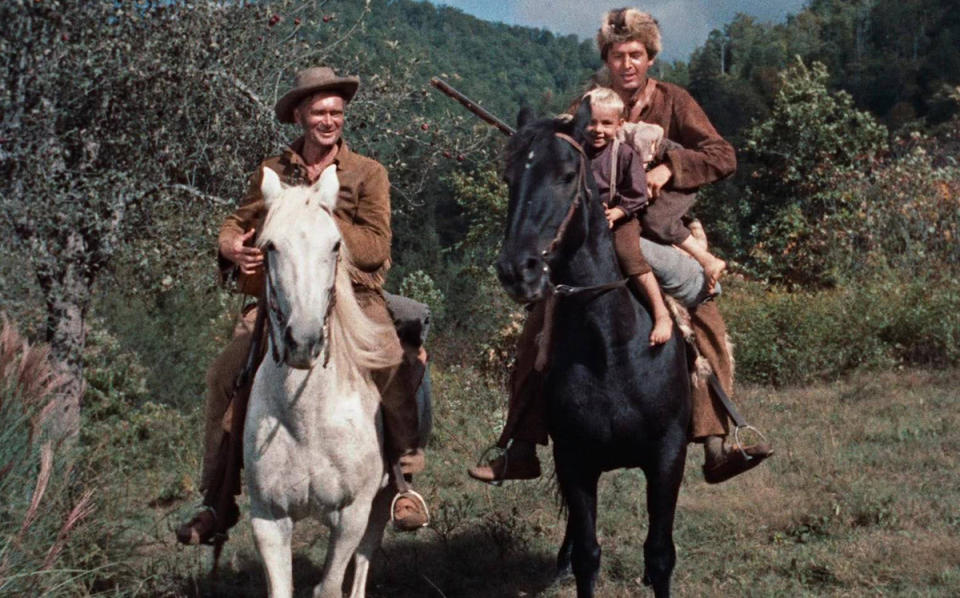
?Disney/courtesy MovieStillsDB.com
Following his time in the war, the actor went to New York to star in a Broadway revival of Show Boat, but upon returning to California in 1946 couldn't find much in the way of film work. As a result, he turned to television, making guest appearances and starring in anthology productions. Then, Walt Disney, always a fan, cast him alongside Fess Parker in the 1954 to 1955 miniseries Davy Crockett. After that, he starred in the 1958 to 1959 Western series Northwest Passage.
MUST-READ: 1950s TV Sitcoms — 40 Classic (and Not So Classic) Shows, and Where to Stream Them
7. Thanks to Davy Crockett, he once again began getting movie parts
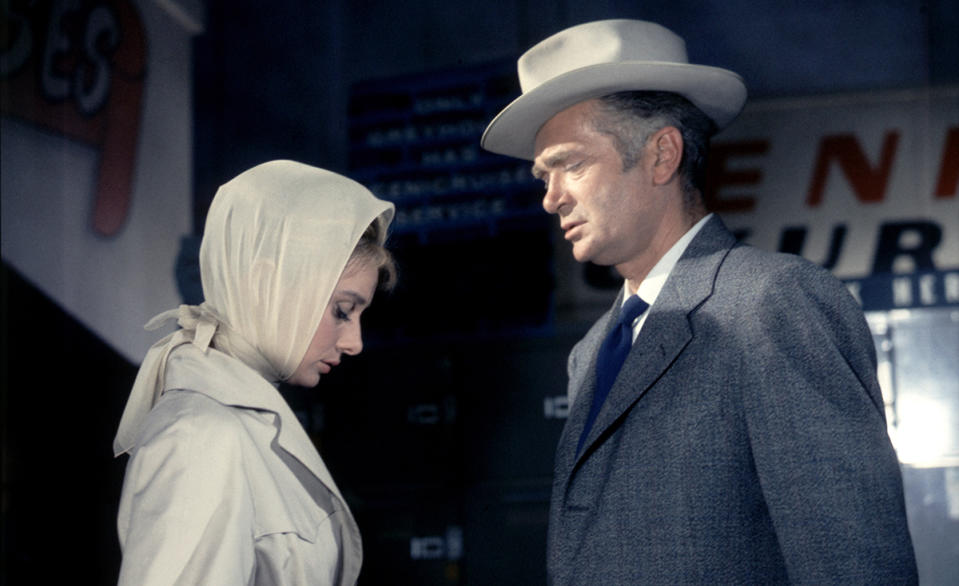
?Paramount Pictures/courtesy MovieStillsDB.com
Due to the impact of Davy Crockett, some producers began to take notice of Buddy Ebsen again and he appeared in Attack (1956), Between Heaven and Hell (1956), Mission of Danger (1959), Frontier Rangers (1959) and Breakfast at Tiffany's (1961), appearing alongside Audrey Hepburn.
8. His greatest success came with The Beverly Hillbillies
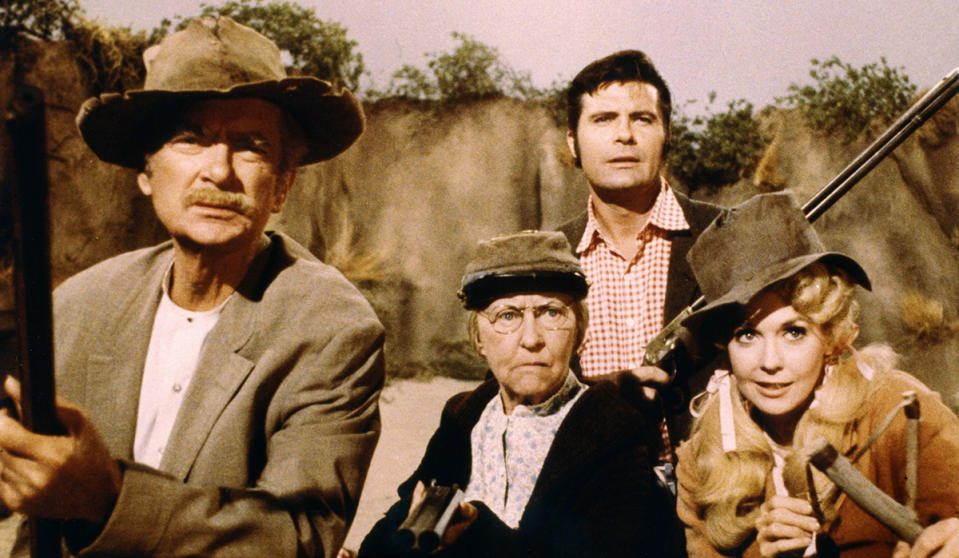
?CBS/courtesy MovieStillsDB.com
There's never been a better fish out of water (or should that be out of a cement pond?) television series than The Beverly Hillbillies. Created by Paul Henning (later to expand that show's world with the spin-offs Petticoat Junction and Green Acres), it begins with a family of hillbillies known as the Clampetts striking oil on their land and becoming mega rich as a result. They decide to move to Beverly Hills, where a huge culture clash plays out between them and pretty much everyone else.
MUST-READ: Petticoat Junction Cast: Hop a Train to the Shady Rest Hotel and Relive All the Laughs
Buddy Ebsen was cast as Clampett patriarch Jed, with Irene Ryan as Granny, Max Baer Jr. as nephew Jethro, and Donna Douglas as Jed's daughter, Elly May. In speaking to the media in 1963, he described Jed Clampett as a straight man in the series, and basically not a comic character. "My job," he said, "is to set up the situations and the lines. Occasionally Jed will make a droll observation and sometimes when the show is slanted toward him, I'll play in a comedy scene."
MUST-READ: Green Acres Cast — 10 Wacky Secrets About the Beloved Farm Living Show
9. Buddy Ebsen's view of television changed a lot during the show's run
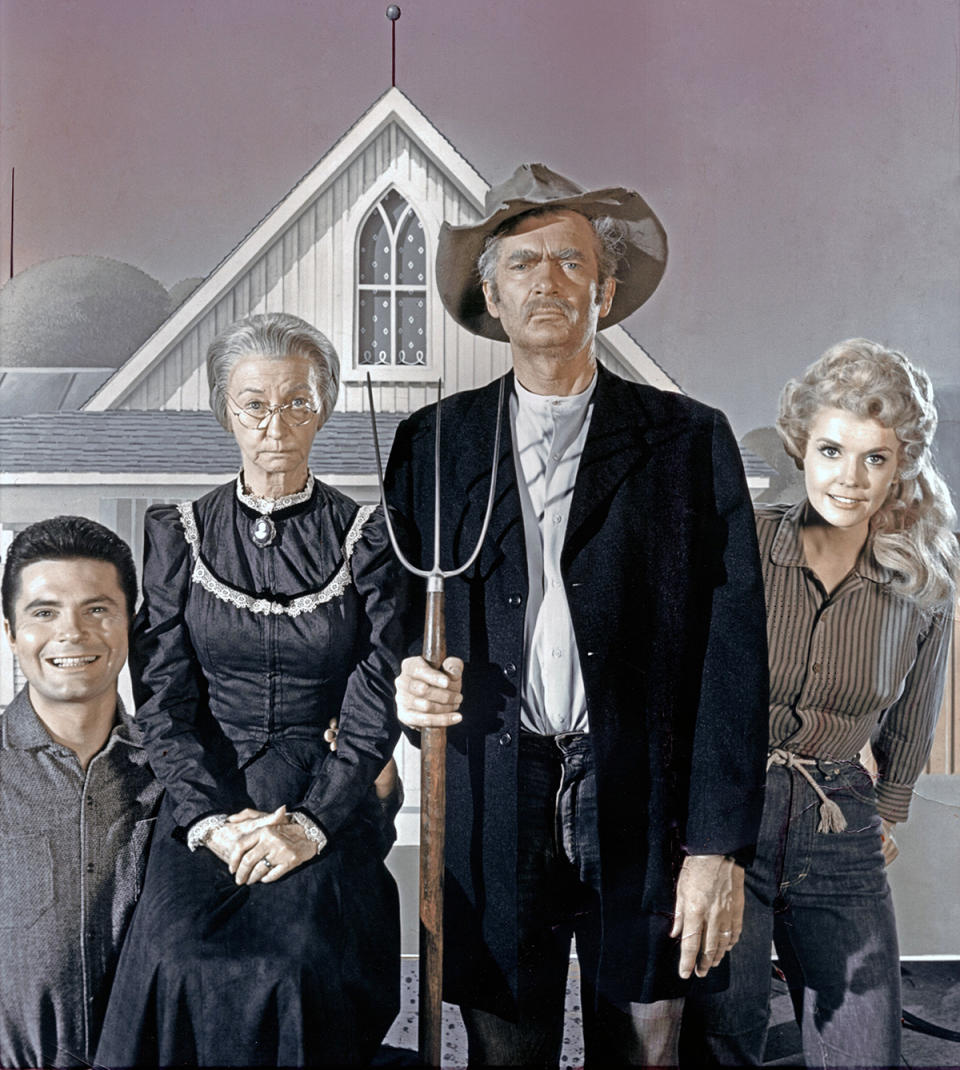
?CBS/courtesy MovieStillsDB.com
The Beverly Hillbillies ran from 1962 to 1971 and a total of 274 episodes. The audience loved it, the show being No. 1 in the ratings in its first two seasons, and in the Top 20 for seven of its eight remaining years. The experience of starring in the show seemed to change quite a bit as far as Buddy Ebsen was concerned. In 1963 he said, "I like Jed Clampett and I like The Beverly Hillbillies. Even if I have the chance to do other things, I could play Jed for as long as it is palatable to the public."
Positive, right? Flash forward to 1964 and he expressed, "There's no doubt about it, television is an actor killer. We work too hard and use too much material. If I could uninvent anything, it would be television. No foolin'. But we're stuck with television and have to make the best of it." At the same time, he was certainly grateful for the fiscal stability the medium provided: "I could have had enough work in movies to make a good living, but television has given me the opportunity to make a better living. I have a home about three miles from Los Angeles and a big boat to go with it. Television didn't get them for me, but it will sure help me keep them."
10. Buddy Ebsen followed The Beverly Hillbillies with Barnaby Jones
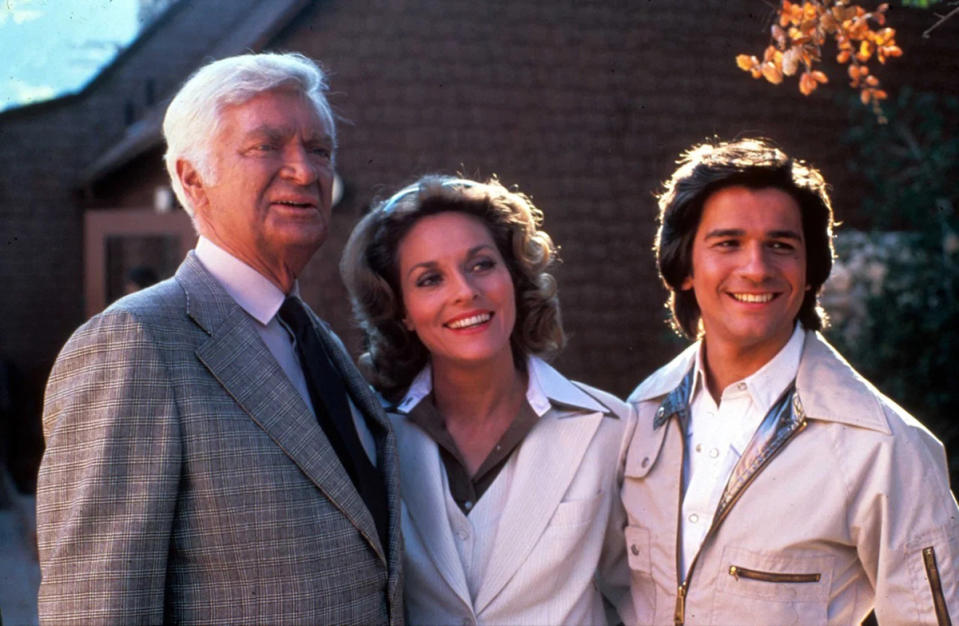
?CBS/courtesy MovieStillsDB.com
Despite its continuing success, The Beverly Hillbillies was canceled in 1971 (CBS was trying to change its image and wanted to move away from "rural" sitcoms), Buddy Ebsen landed on his feet, scoring the title role in the detective series Barnaby Jones. The show was successful in its own right, running for eight seasons and 178 episodes between 1973 and 1980.
"I play a retired detective whose son is killed on a case," he explained before the show's debut. "So I return to work to avenge my son's death and stay on the job. And Barnaby's a brand new man, not related in any way to roles I've played before. He's a contemporary man who feels at home in almost any surrounding."
MUST-READ: The Rockford Files — What Happened to the Cast of the Beloved Show
11. His final series was Matt Houston
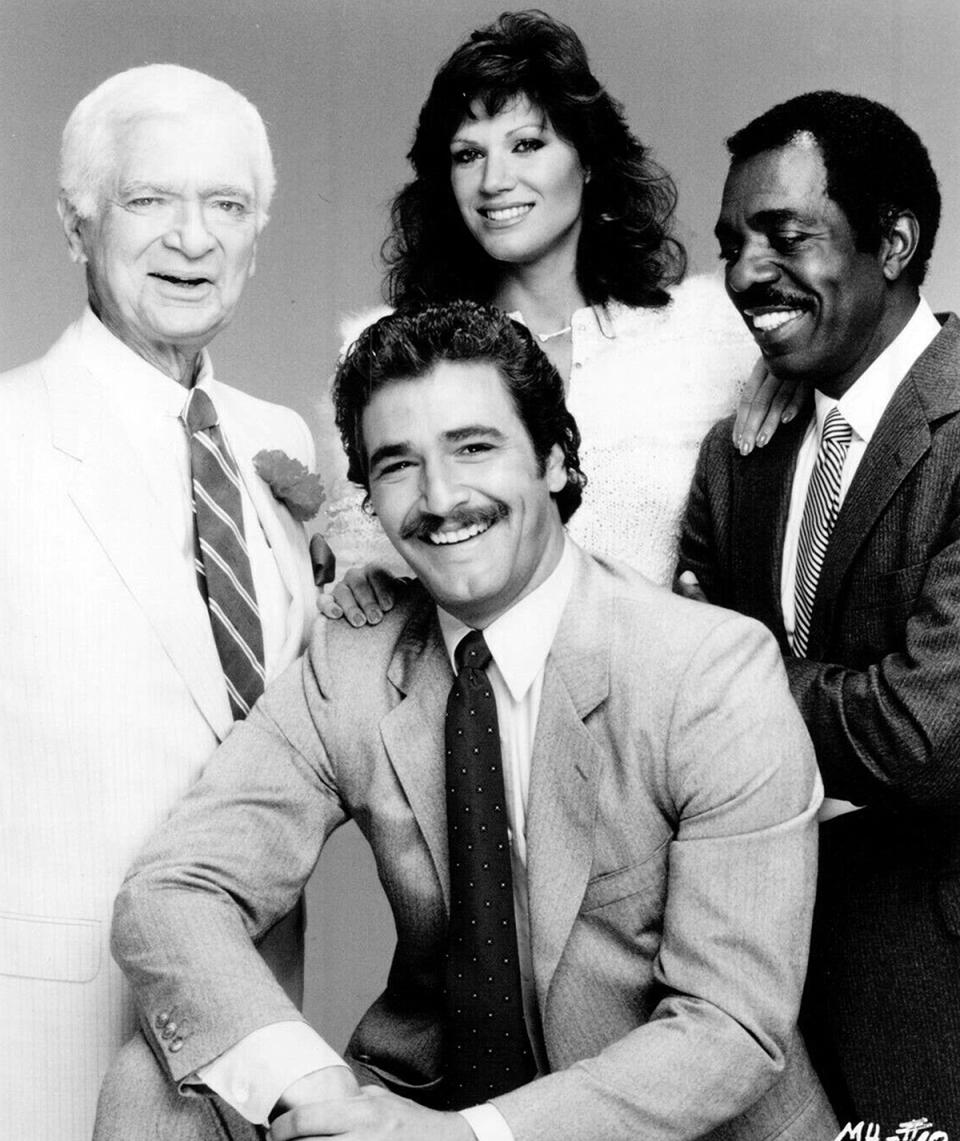
?ABC/courtesy MovieStillsDB.com
Lee Horsley starred as the title character Matt Houston, a private detective and show that ran on ABC from 1982 to 1985. In the show's final season from 1984 to 1985, Buddy Ebsen joined the cast as Matt's uncle, Roy Houston. "He's cool," the actor said at the time, "except when it comes to the subject of forcible retirement. He's sharp, a snappy dresser, he's got a great sense of humor and he enjoys his work. If there's a little danger mixed in his work, that just makes it more interesting."
Outside of a couple of guest shots, he basically retired from acting. once Matt Houston ended.
12. Buddy Ebsen had a number of interests outside of acting

David Keeler/Online USA
Beyond acting, Buddy Ebsen was a folk artist, creating works that frequently reflected his television characters; rare coin collector, he designed and built his own boat, a catamaran named Polynesian Concept; he recorded three albums (1965's Buddy Ebsen Says Howdy, 1966's The Beverly Hillbillies and 2001's Buddy's Originals), and wrote or co-wrote 1972's Polynesian Concept (about sailing), the 1994 memoir The Other Side of Oz, 2000 novel Kelly's Quest and a Barnaby Jones book, Sizzling Cold Cases, in 2017.
13. He was given a star on the Hollywood Walk of Fame
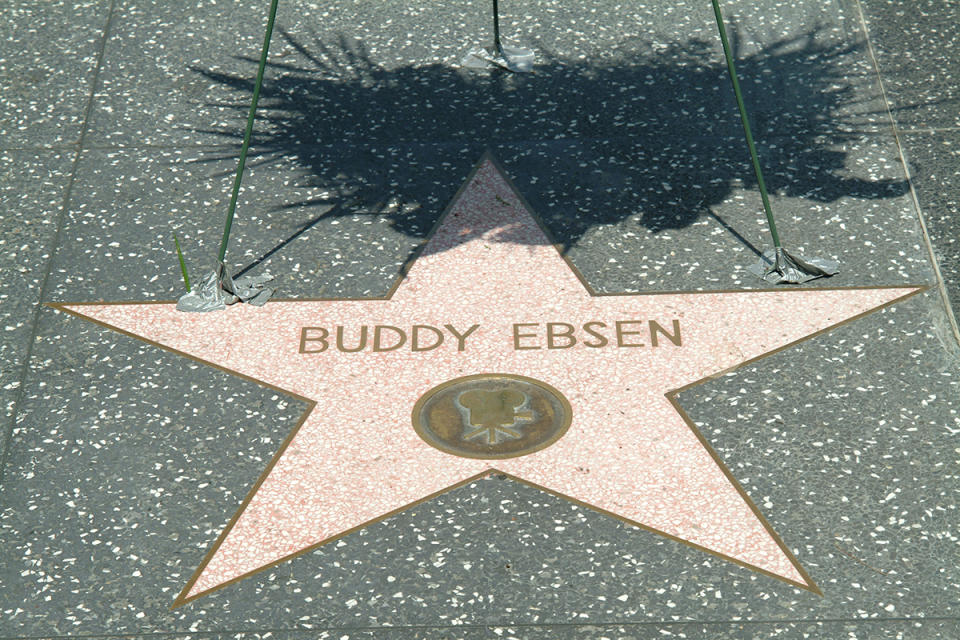
Robert Mora/Getty Images
Interestingly, back on February 8, 1960 — two years prior to the arrival of The Beverly Hillbillies — Ebsen was given a star on the Hollywood Walk of Fame. For anyone wanting to check it out, it's located at 1765 Vine Street.
14. Buddy Ebsen was married three times
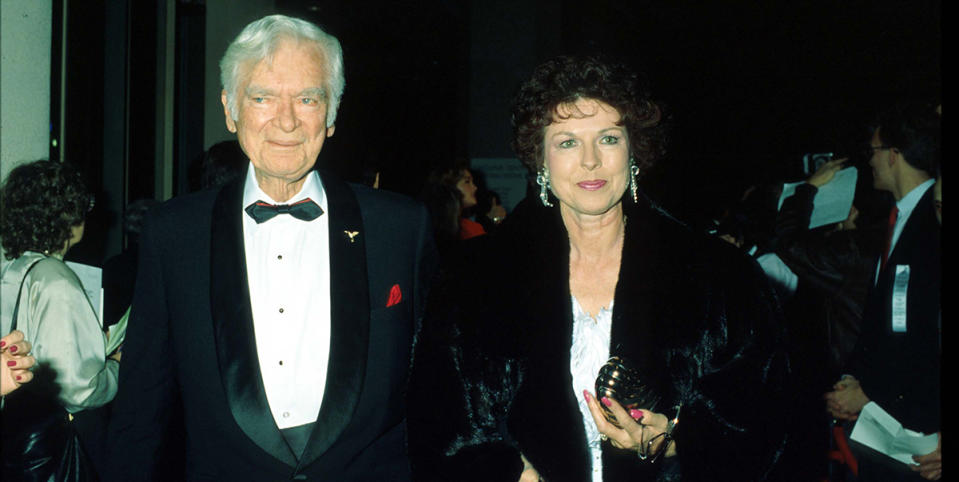
Barry King/Liaison
The father of seven, he was married three times — to Ruth Cambridge from 1936 to 1942, Nancy Wolcott from 1945 to 1985, and Dorothy Knott (37 years younger than him) from 1985 until the time of his death in 2003. The cause of his passing at age 95 was respiratory failure.
